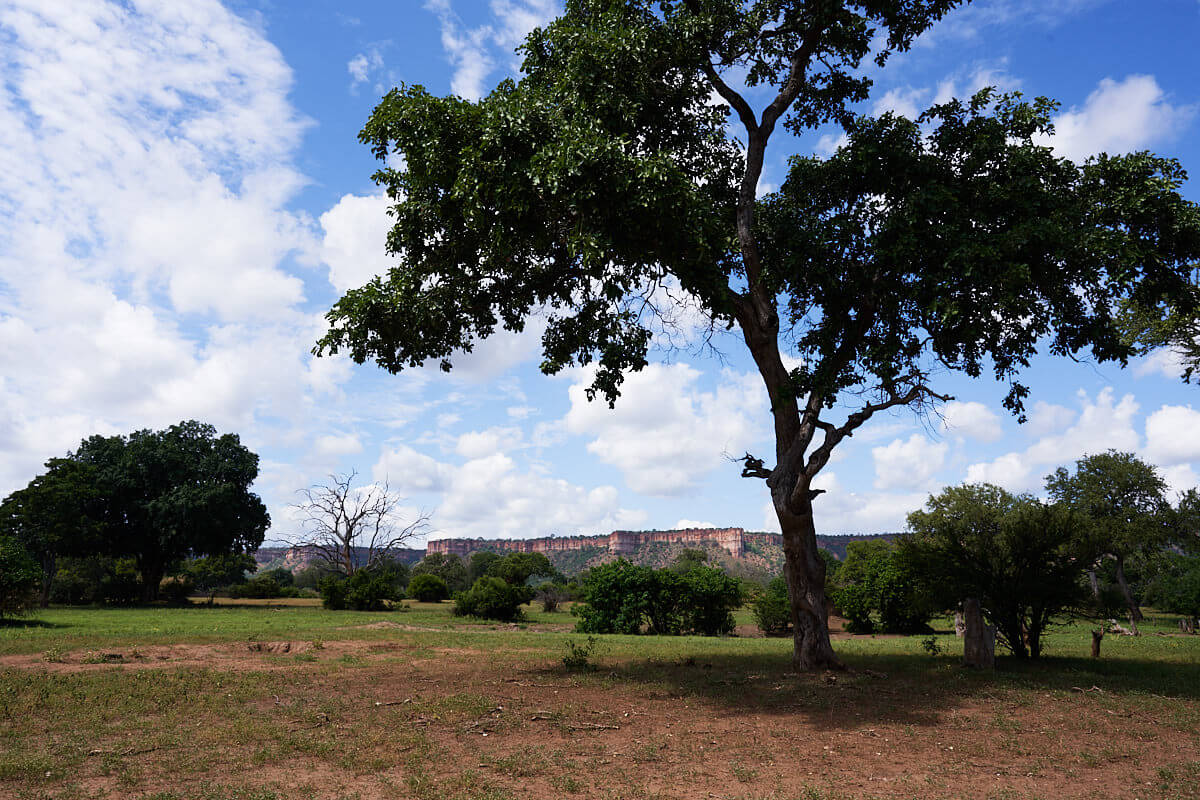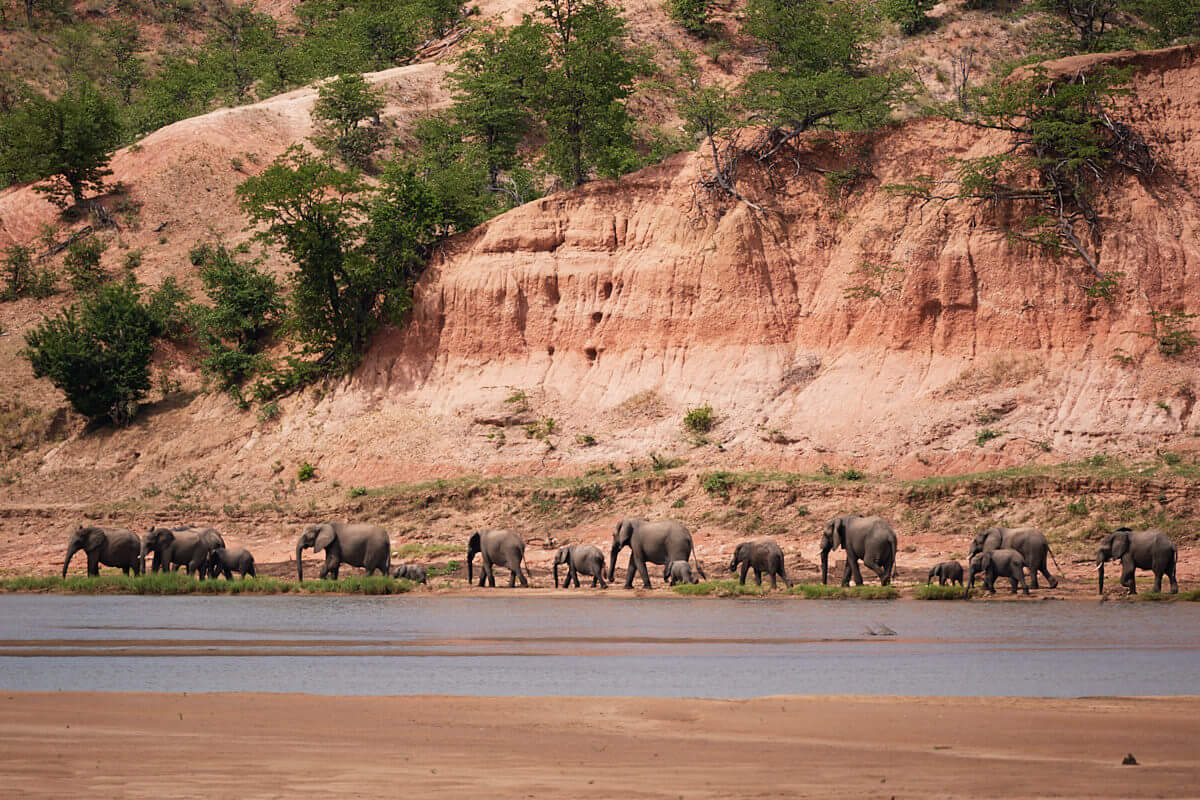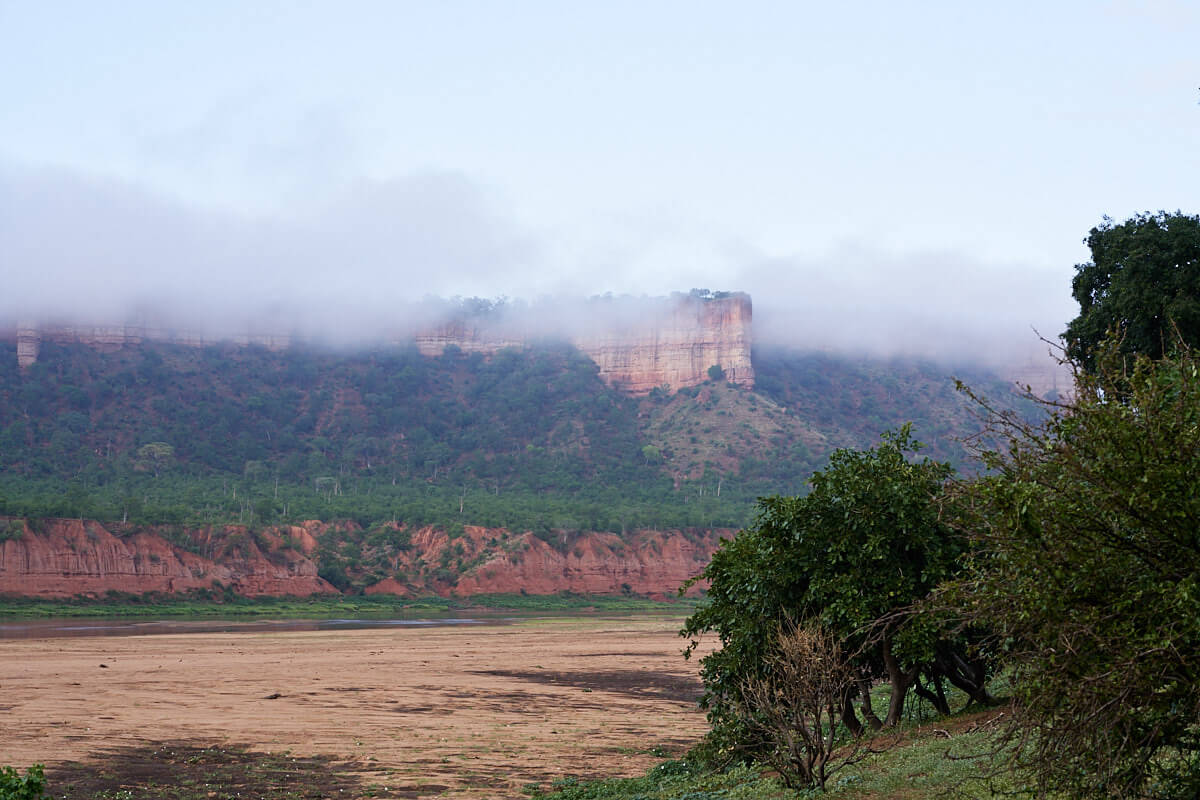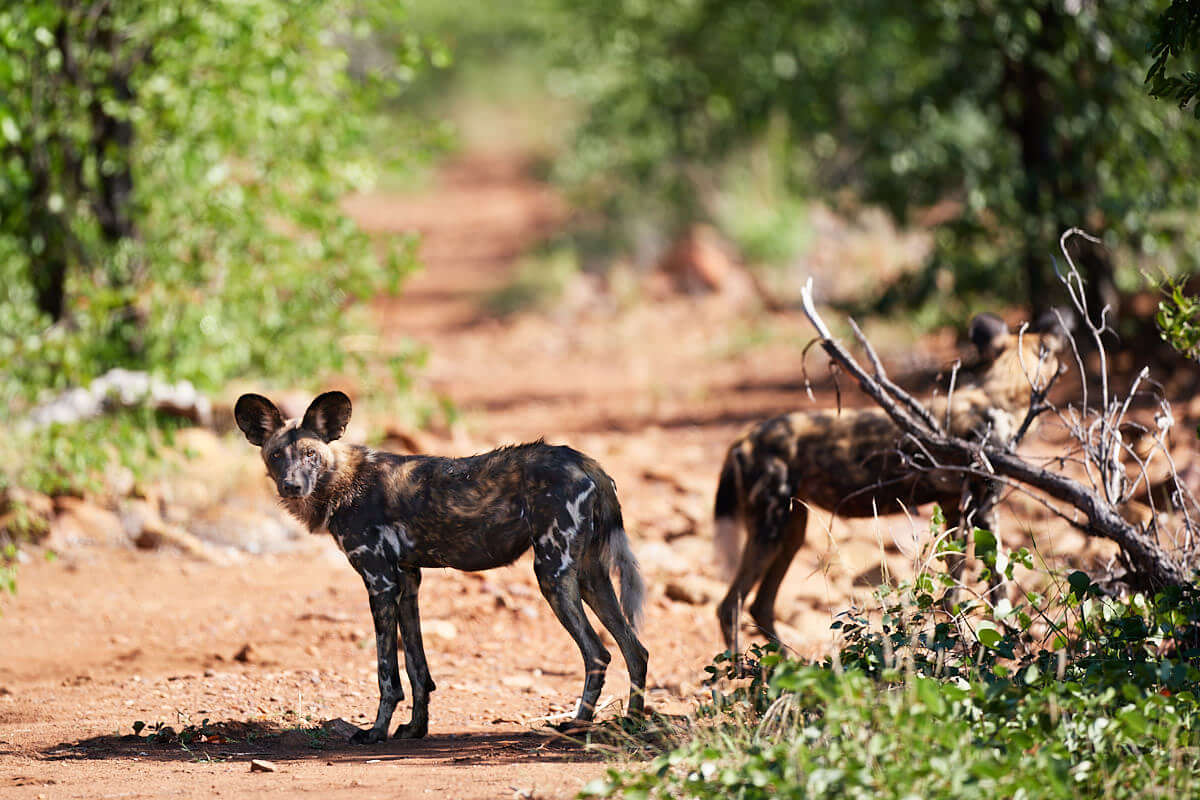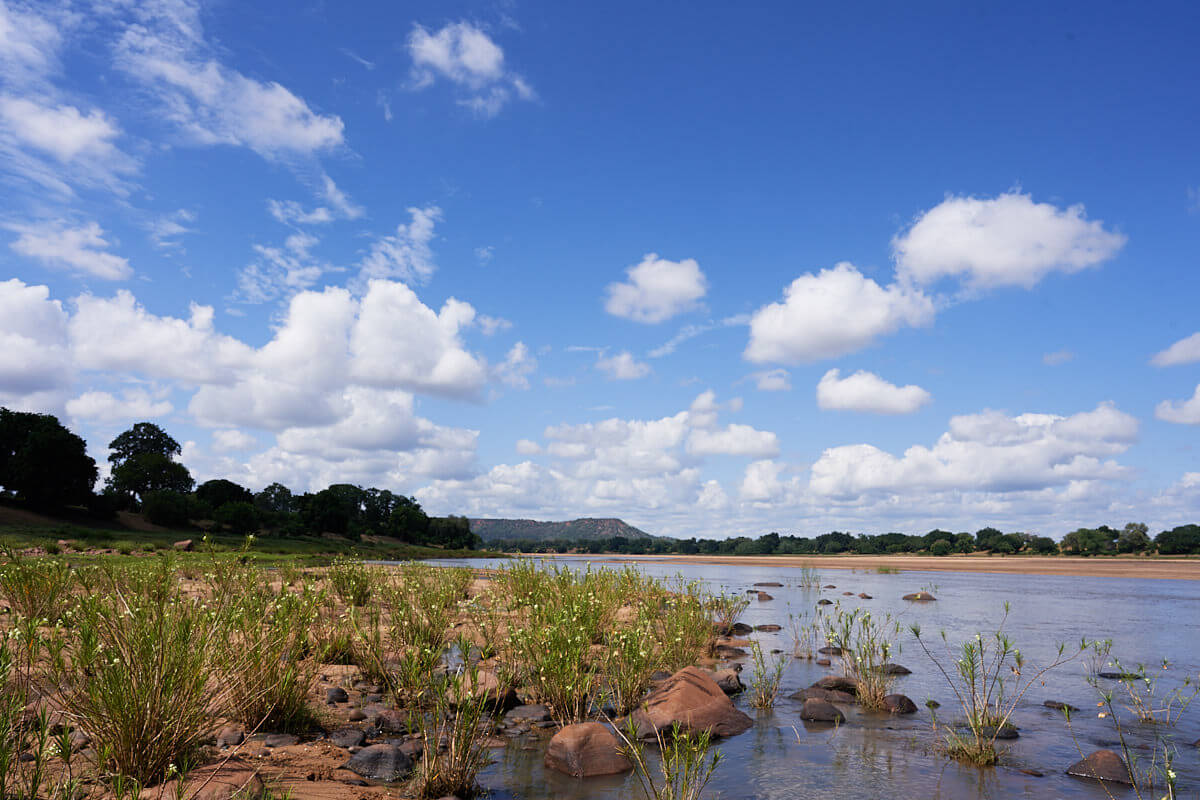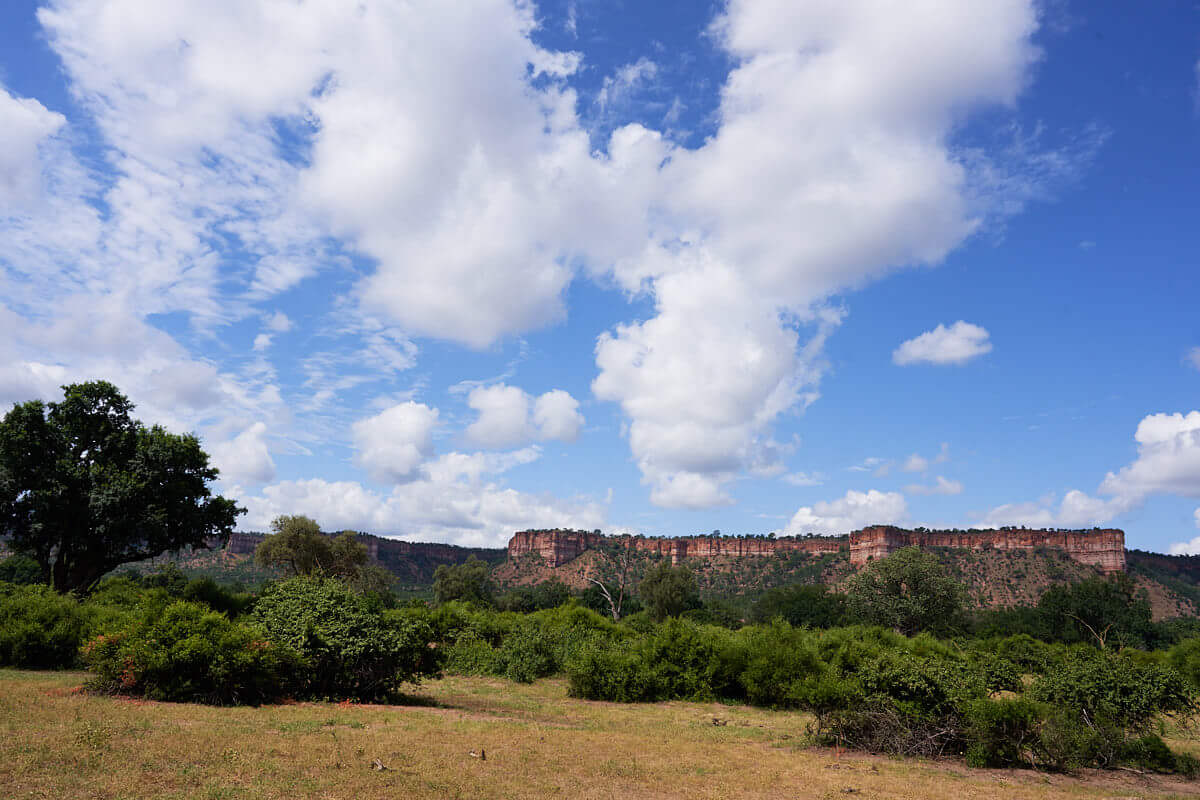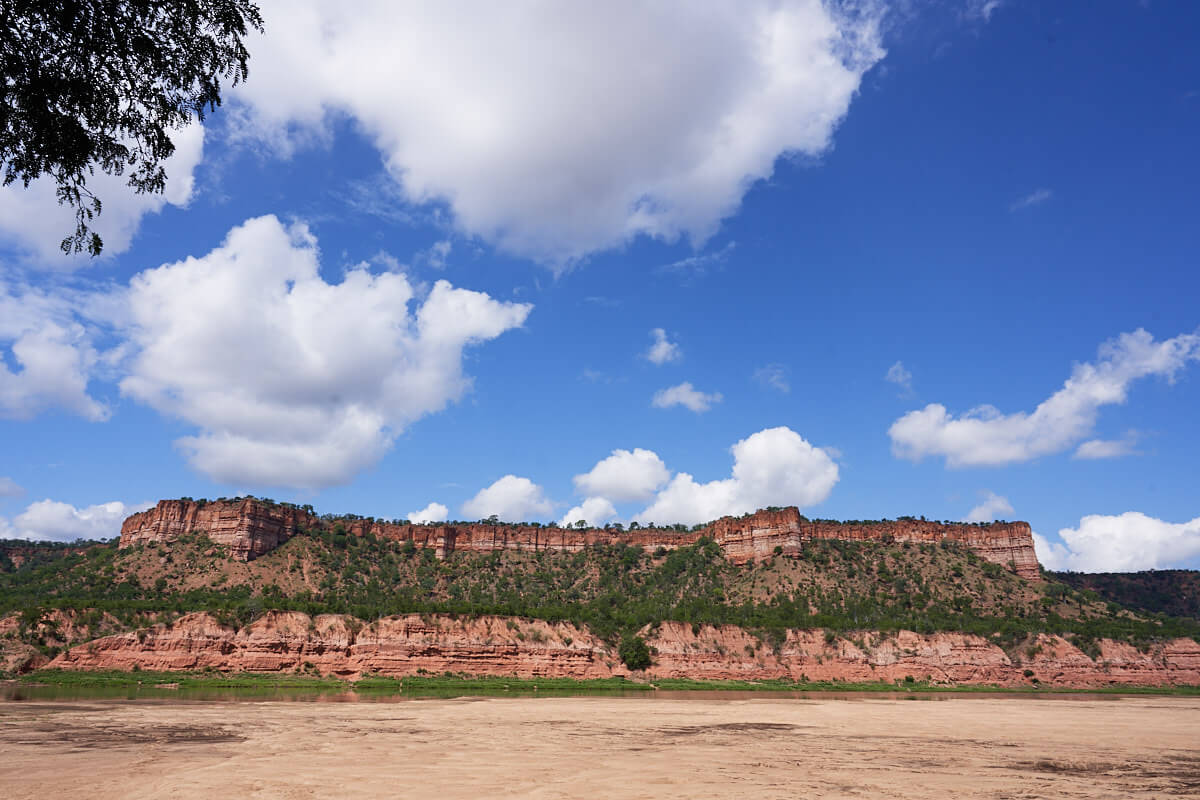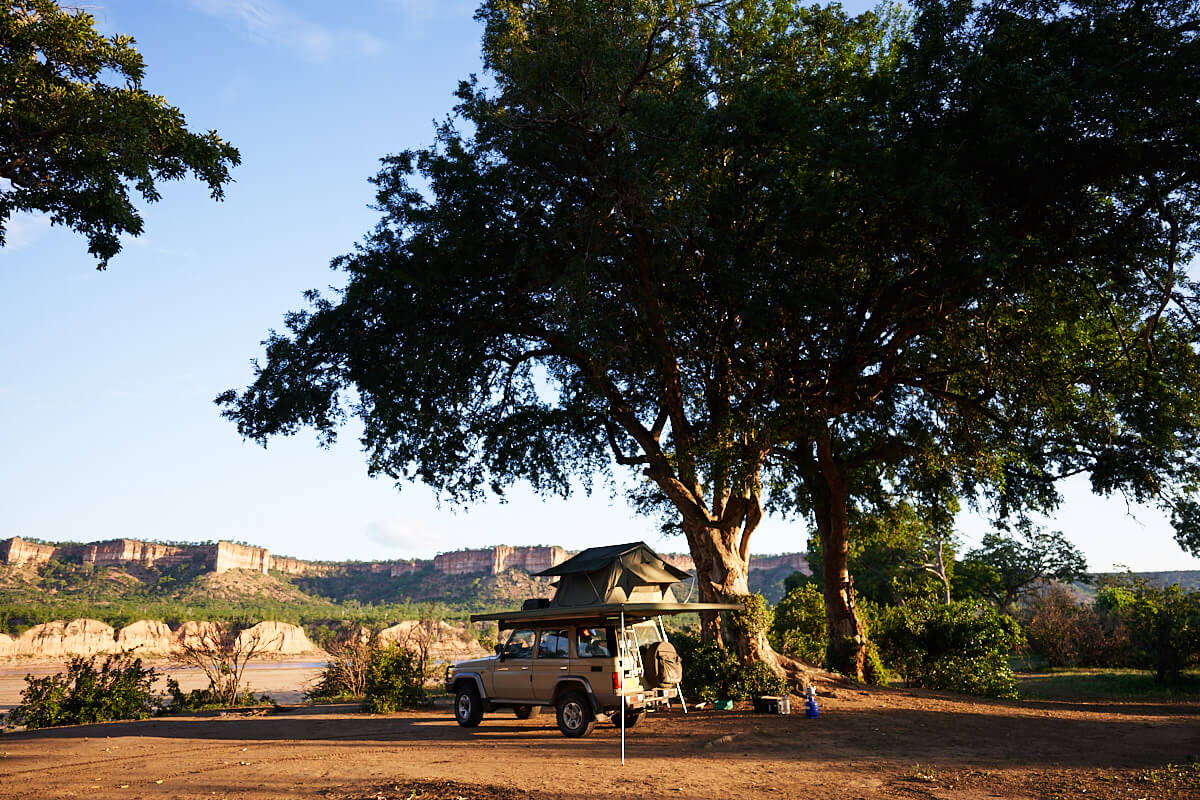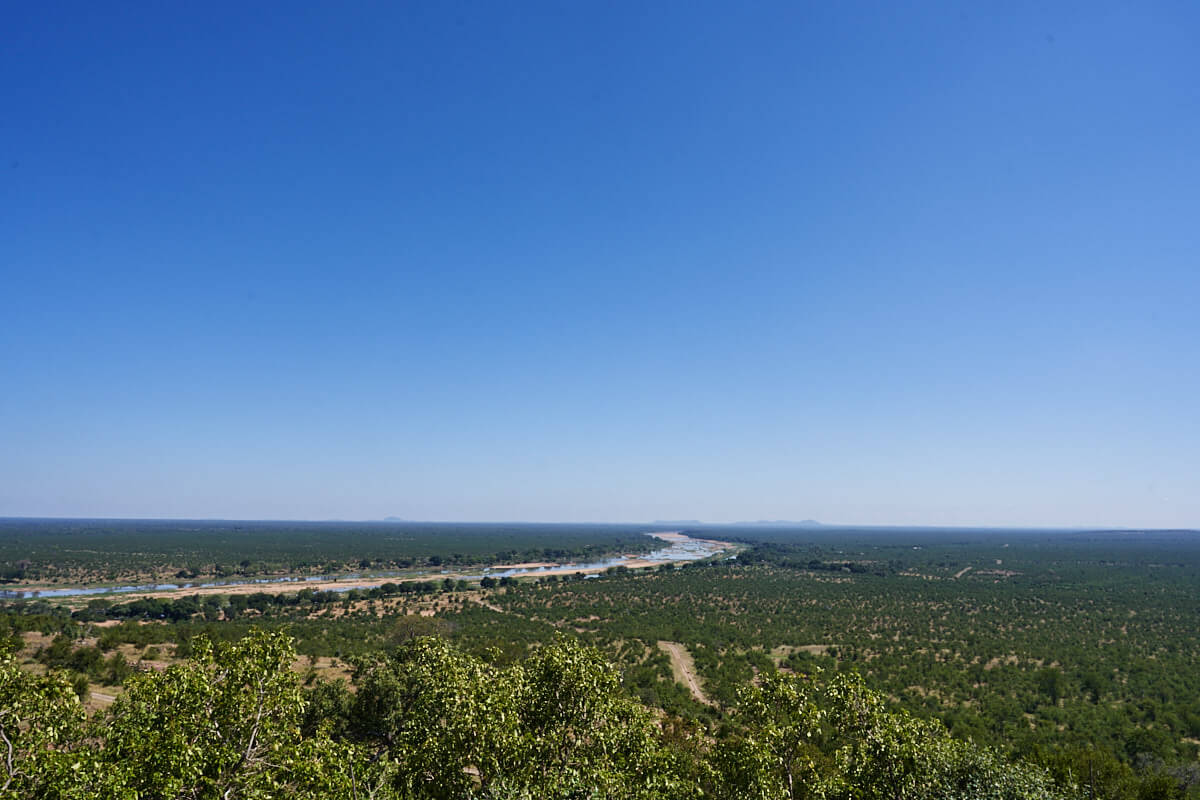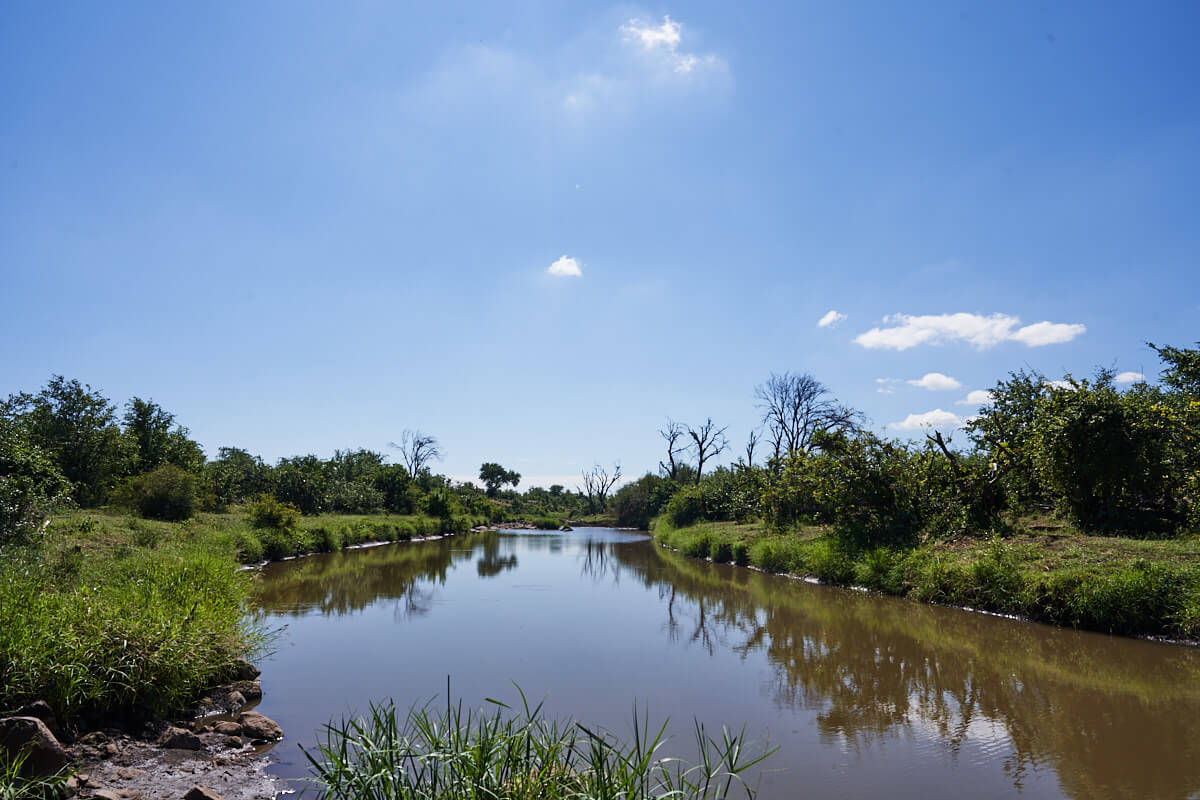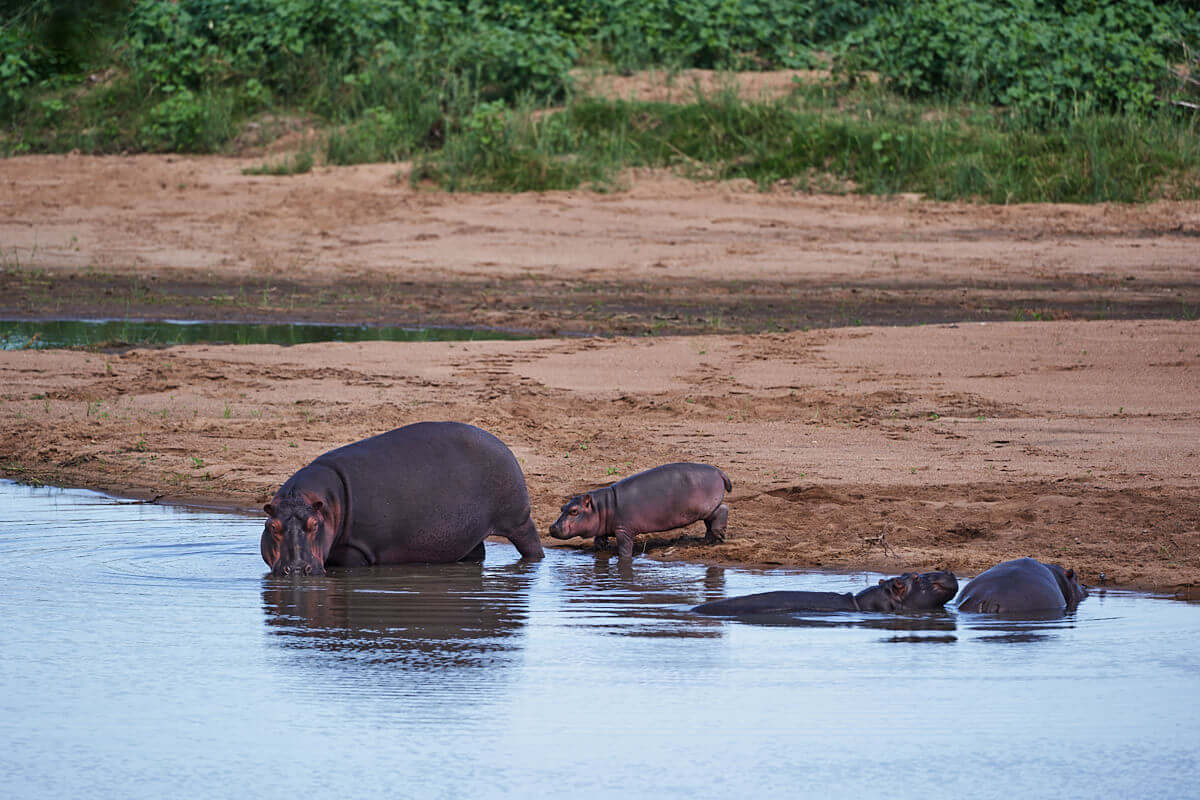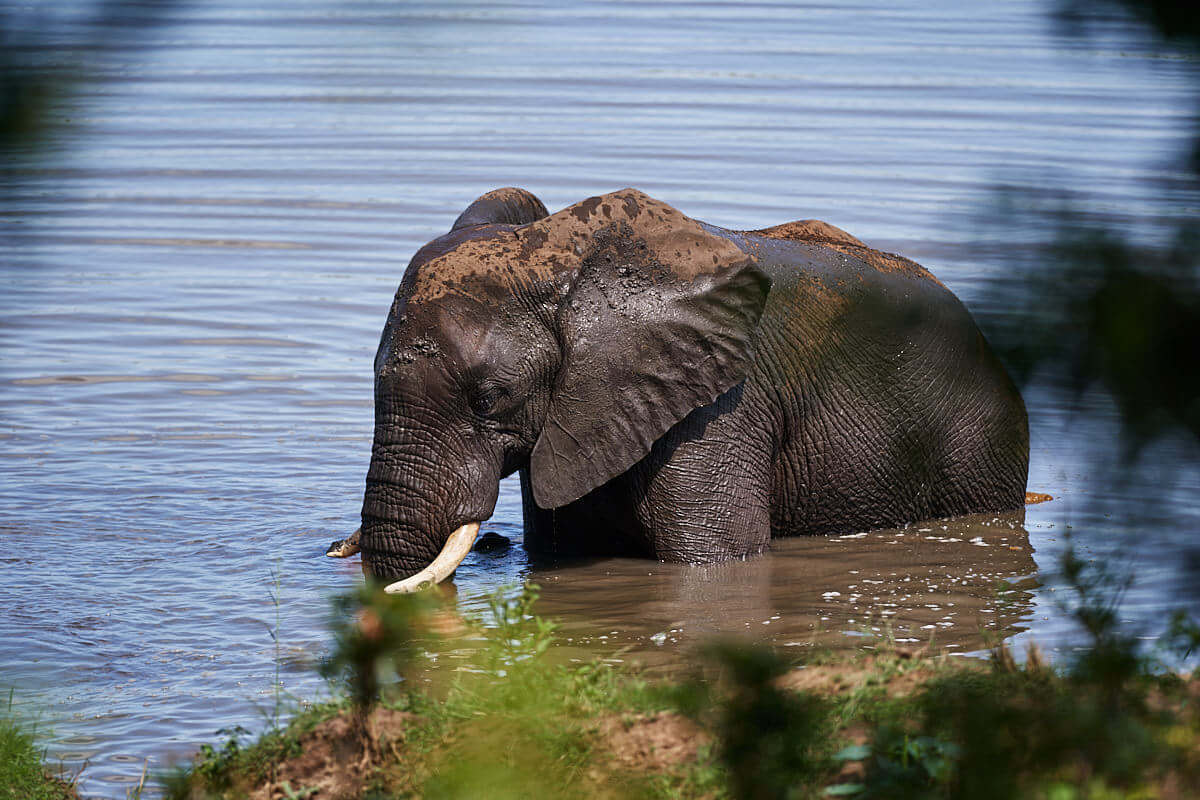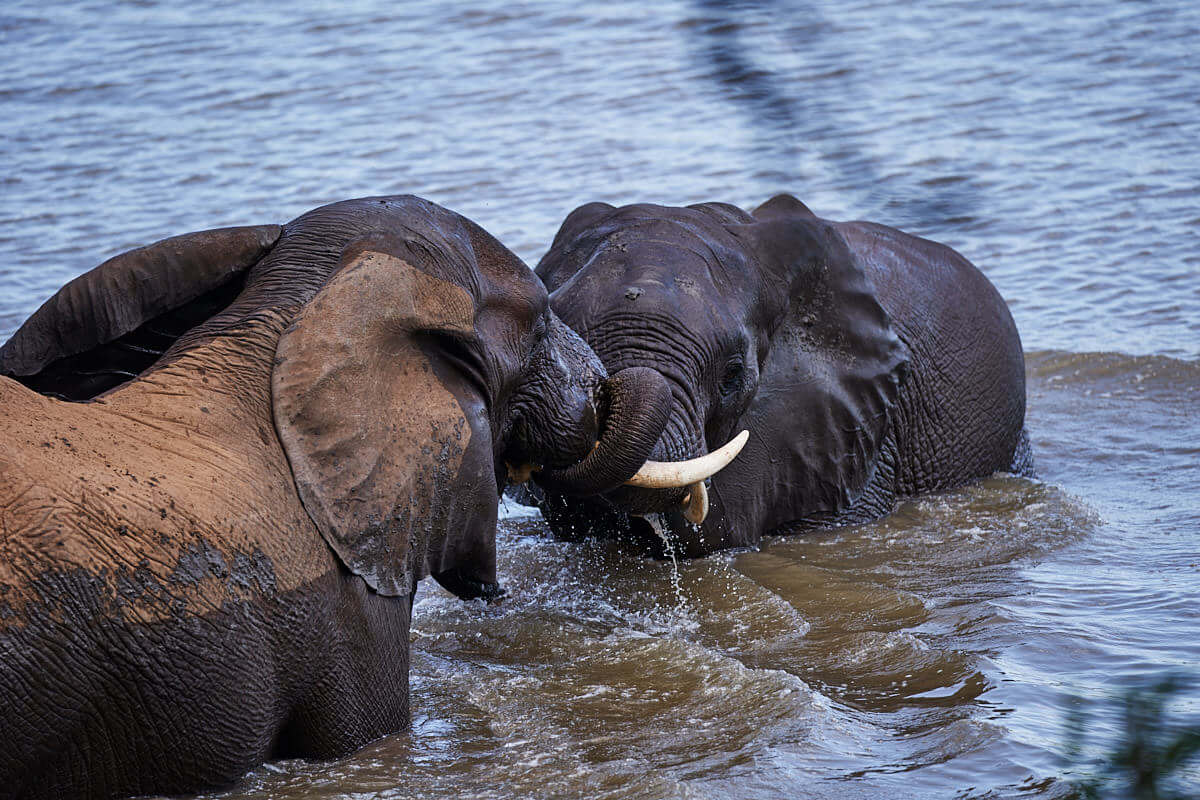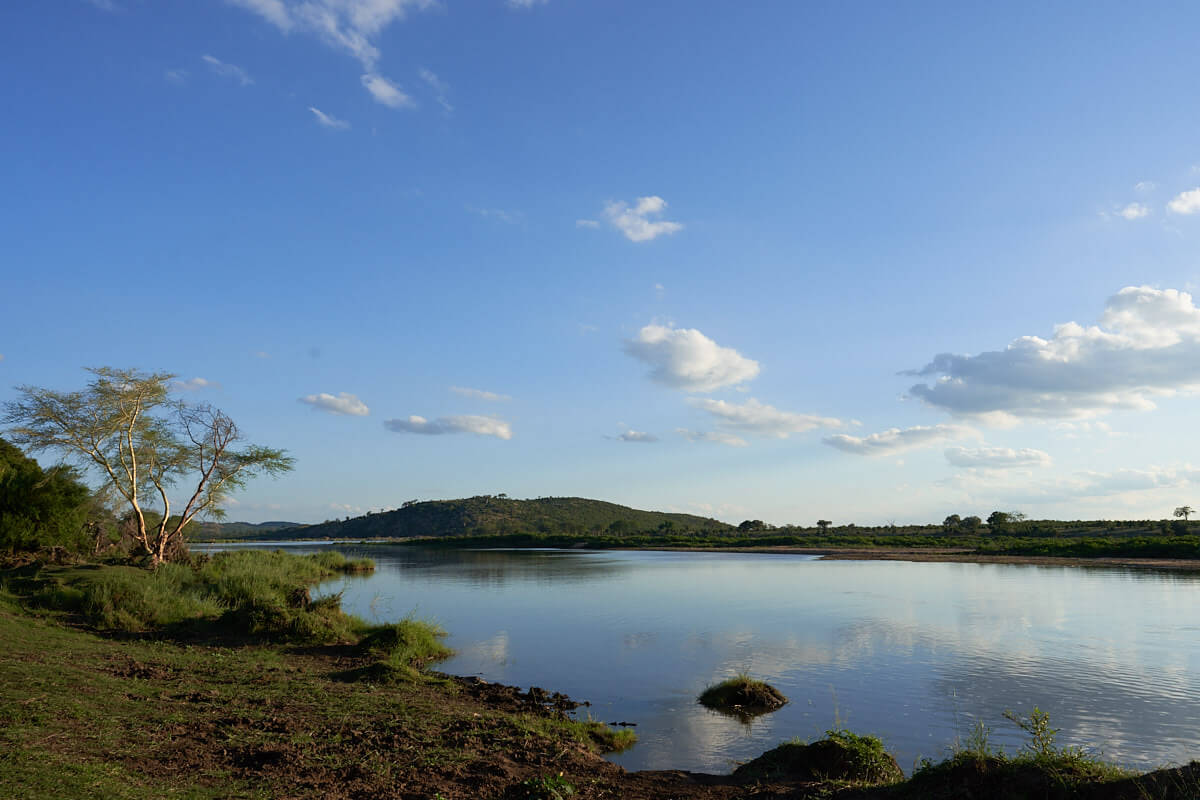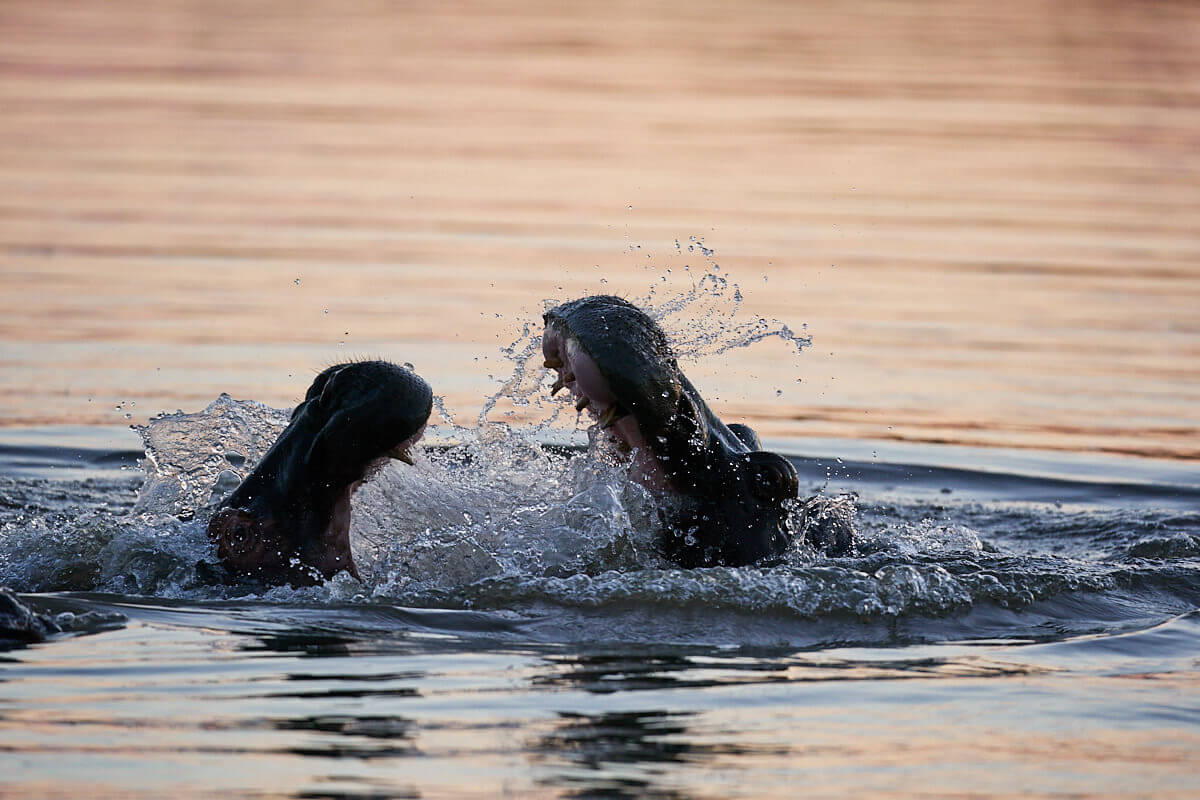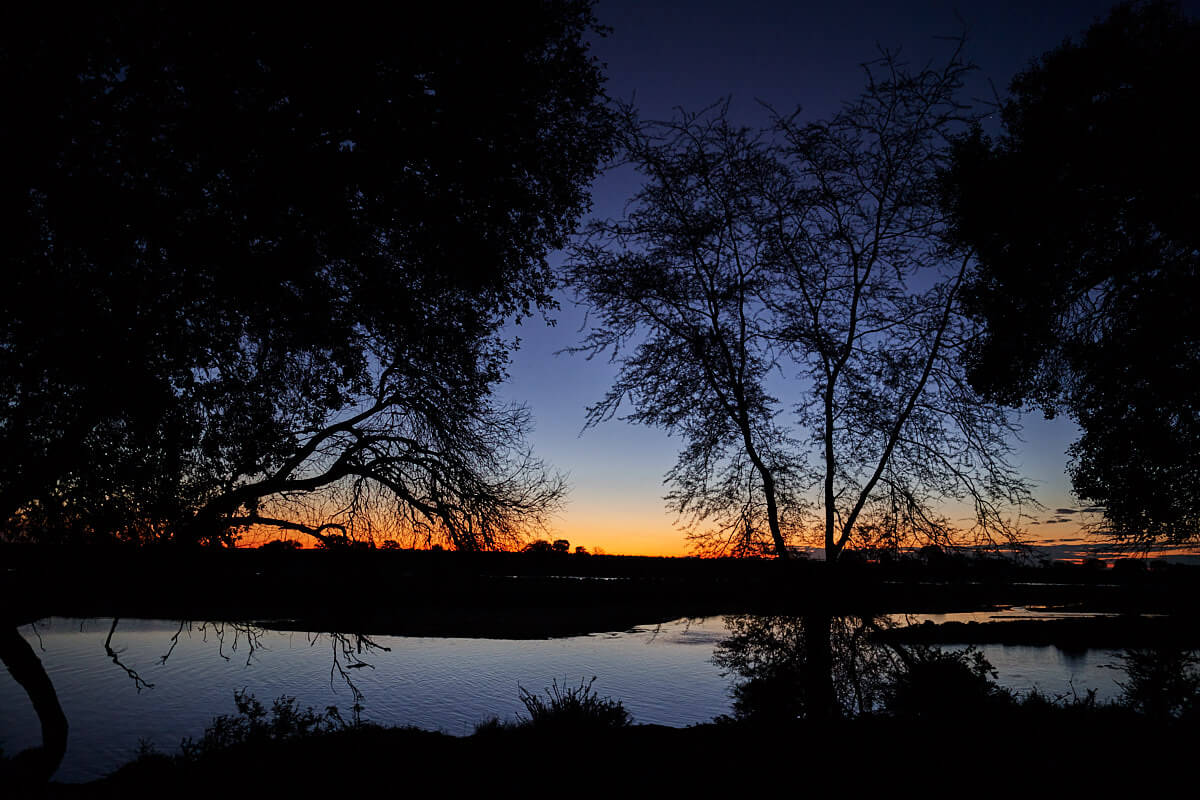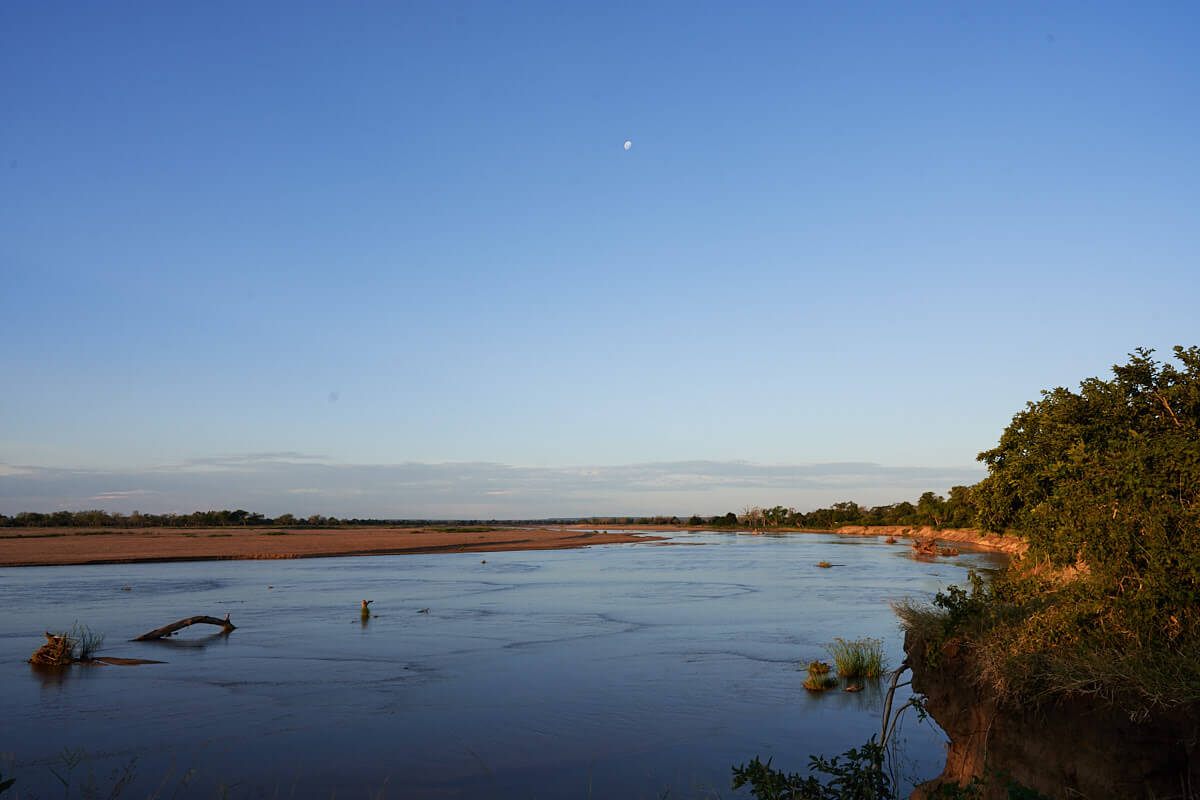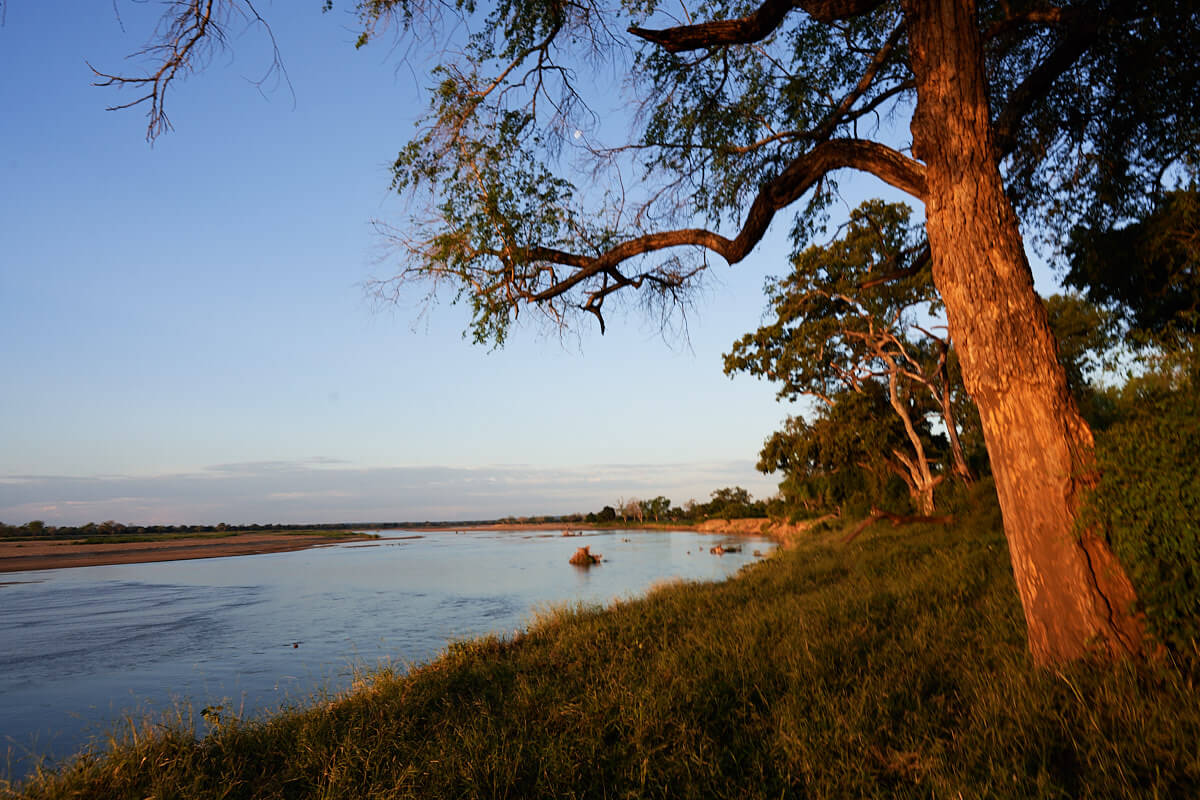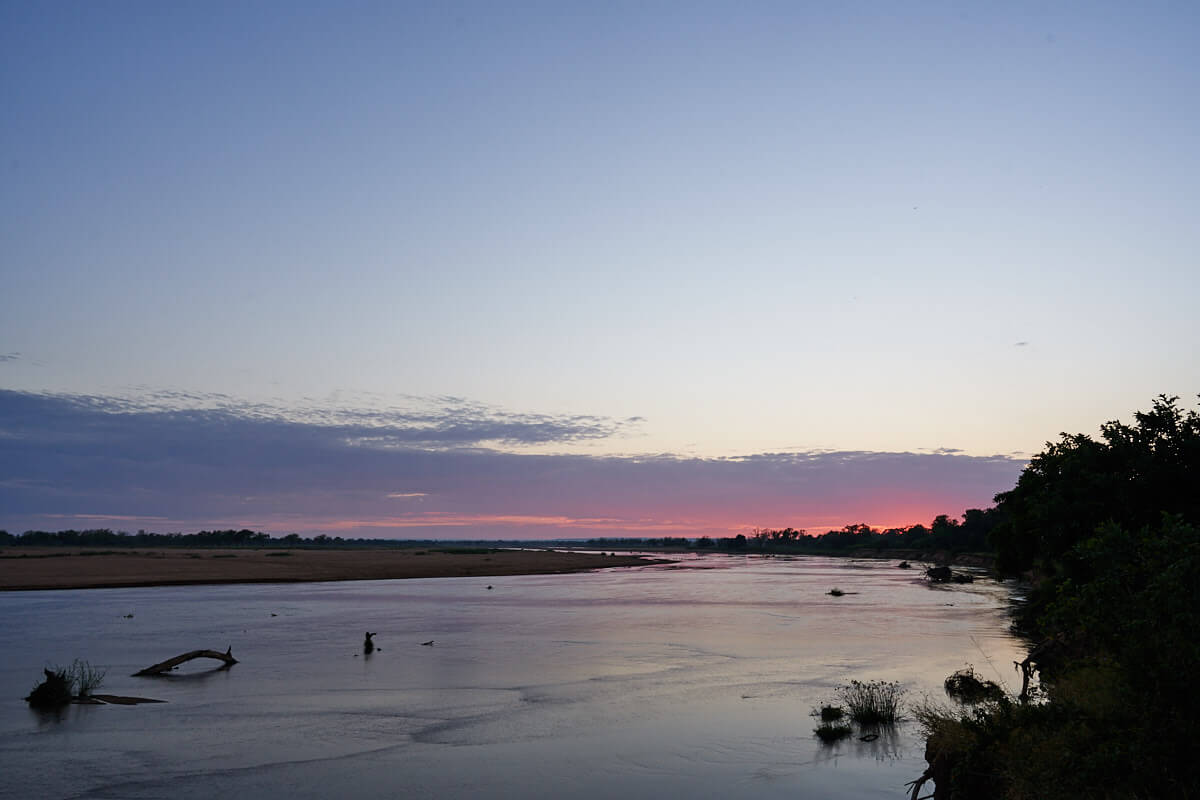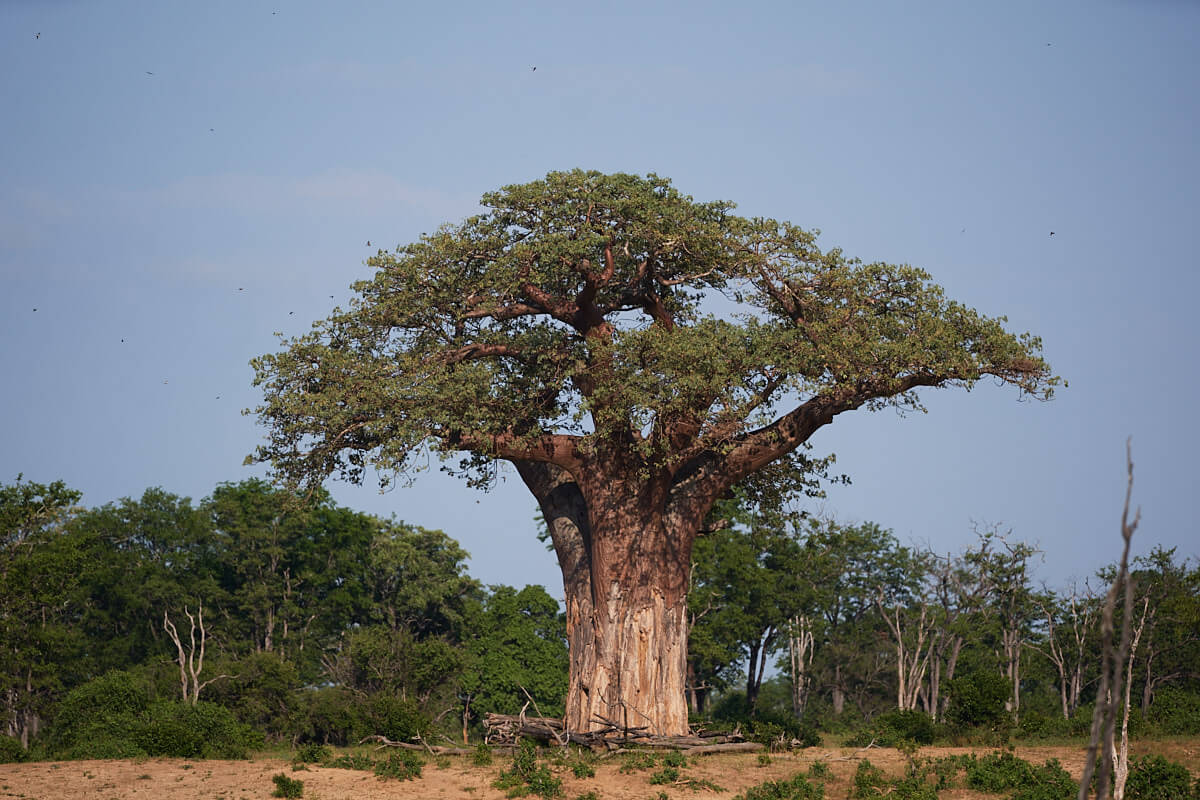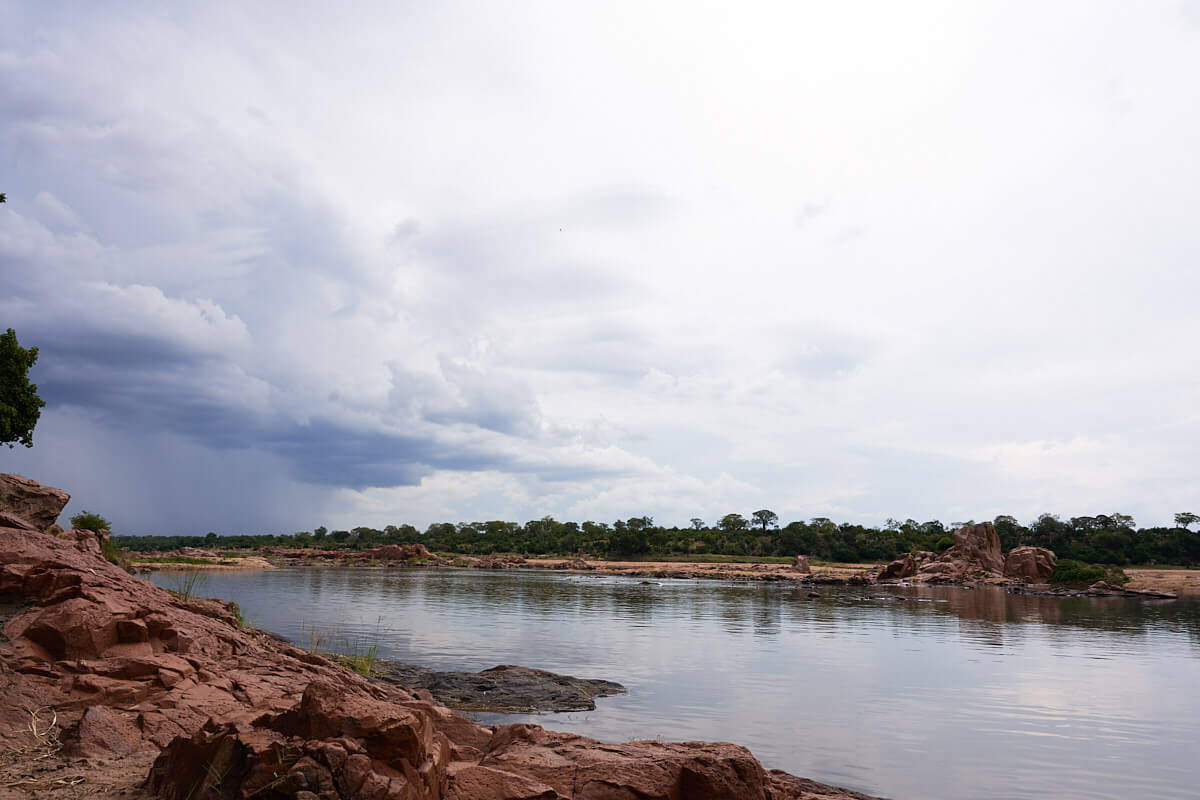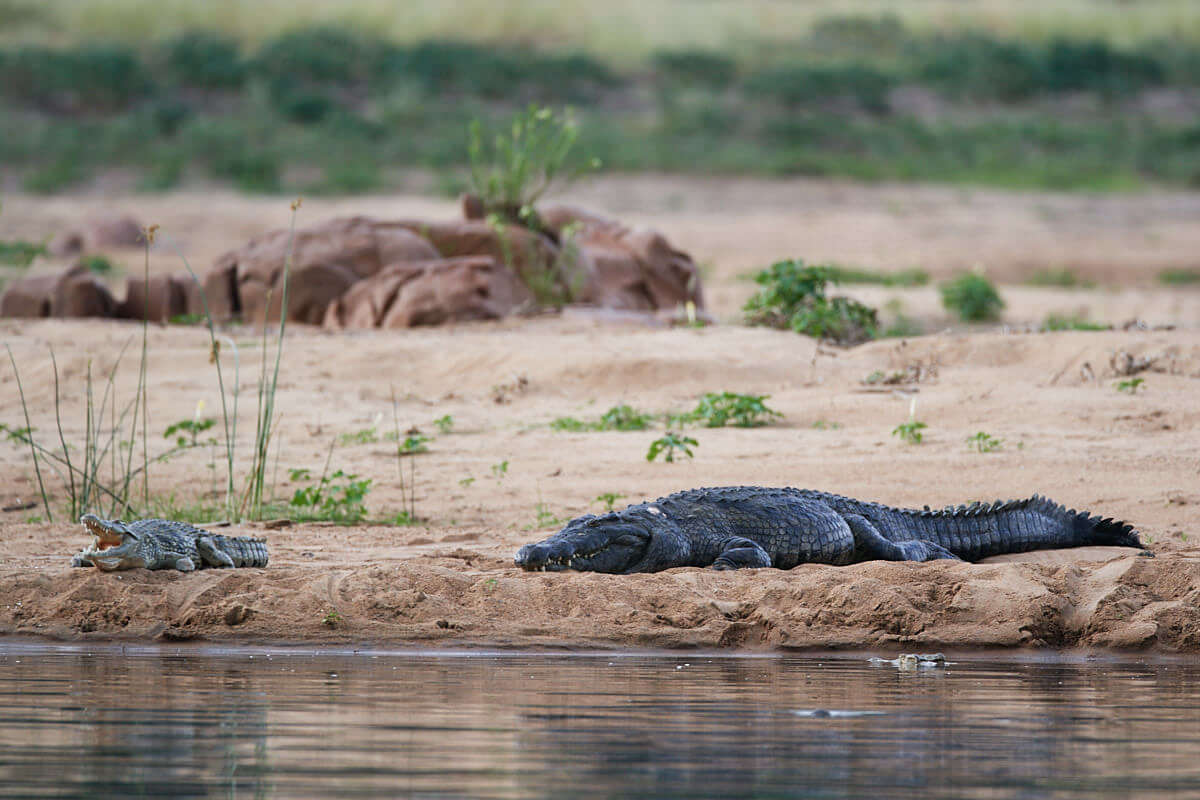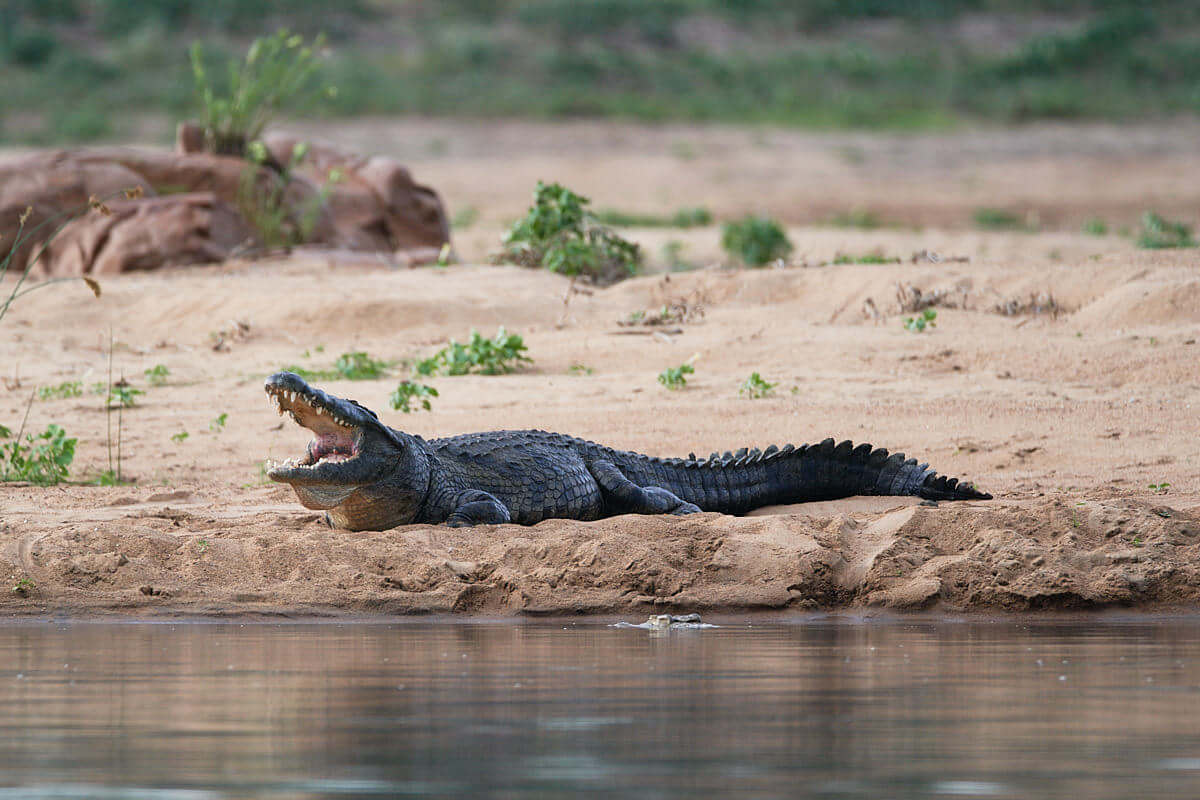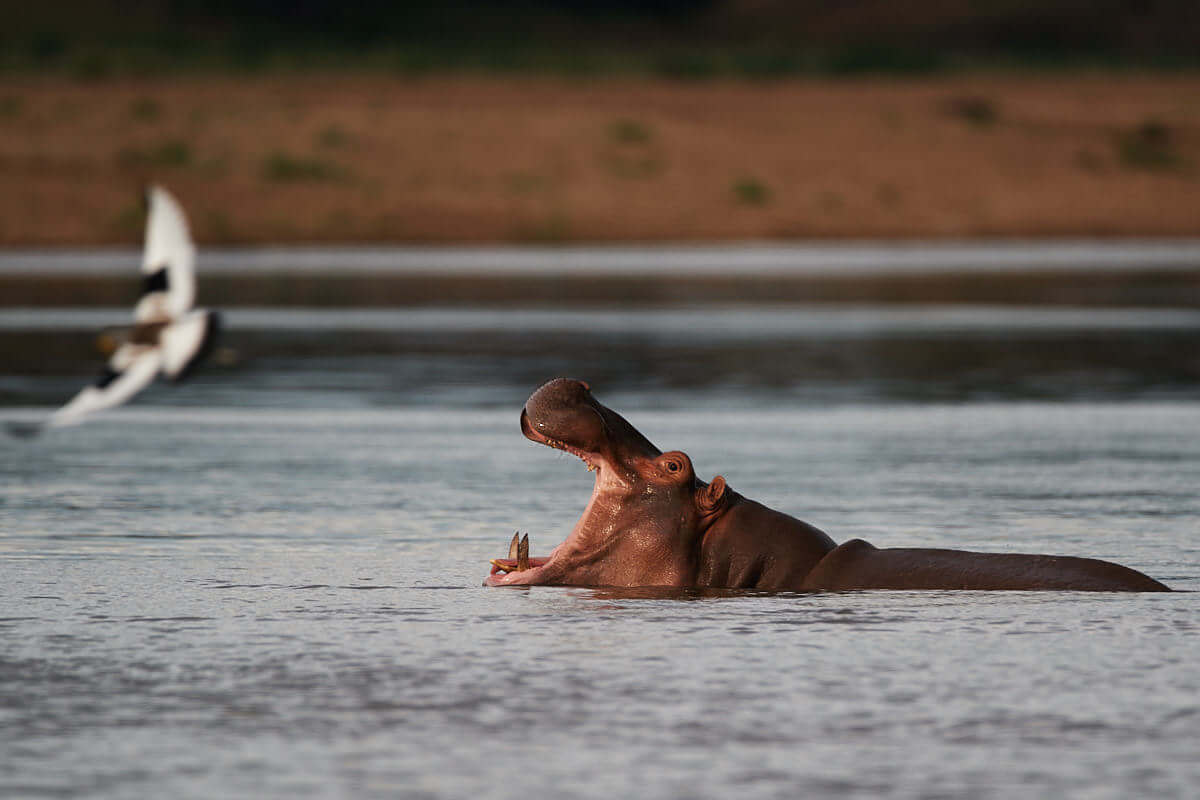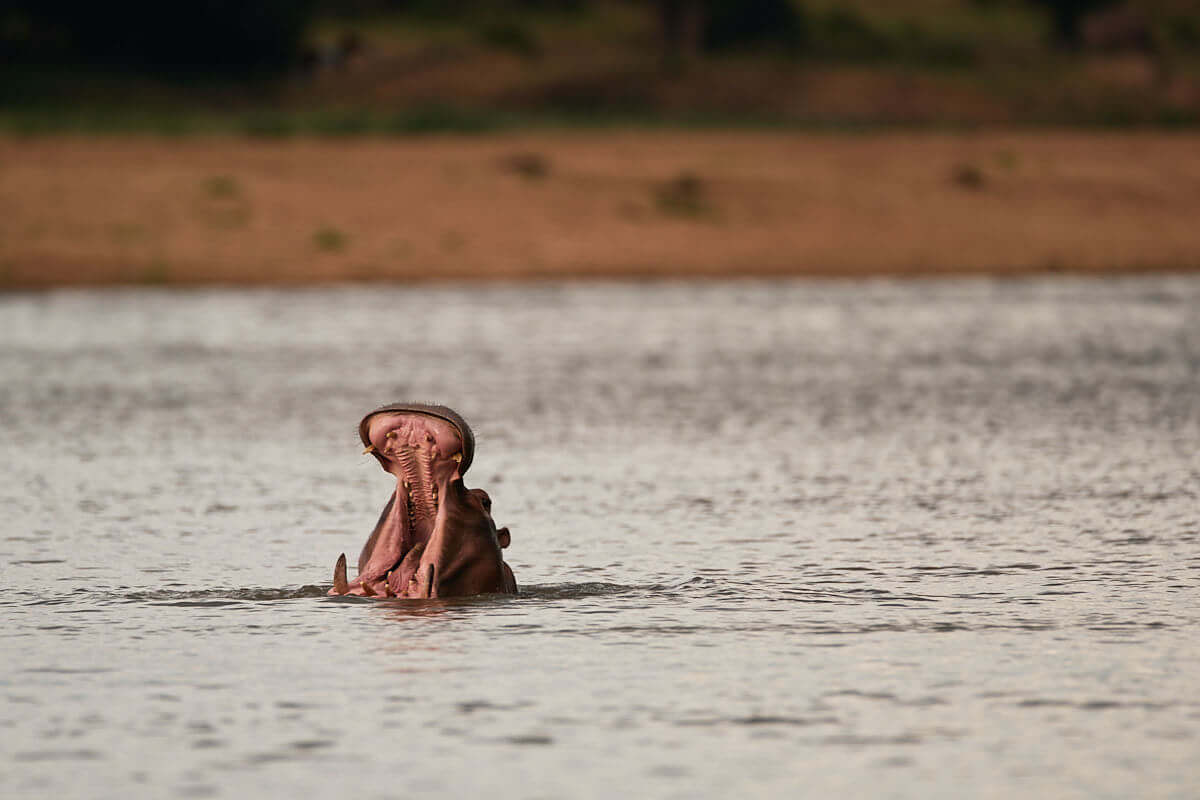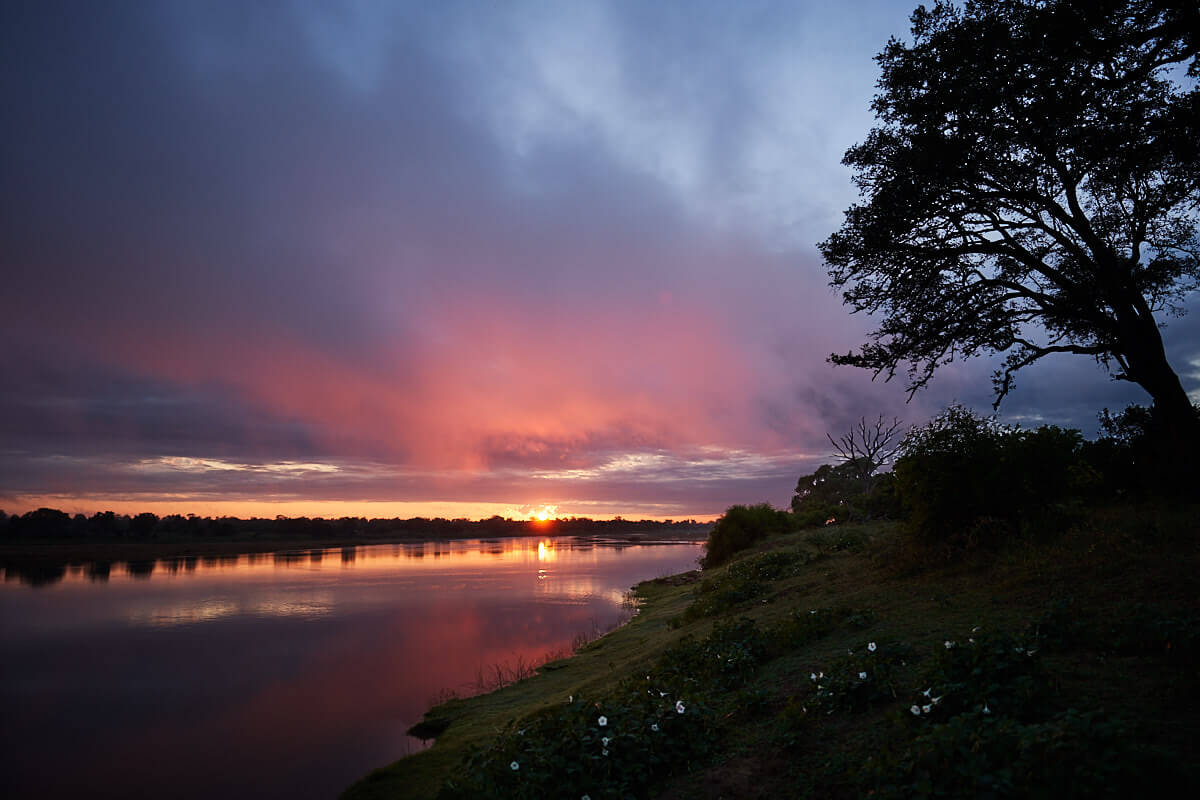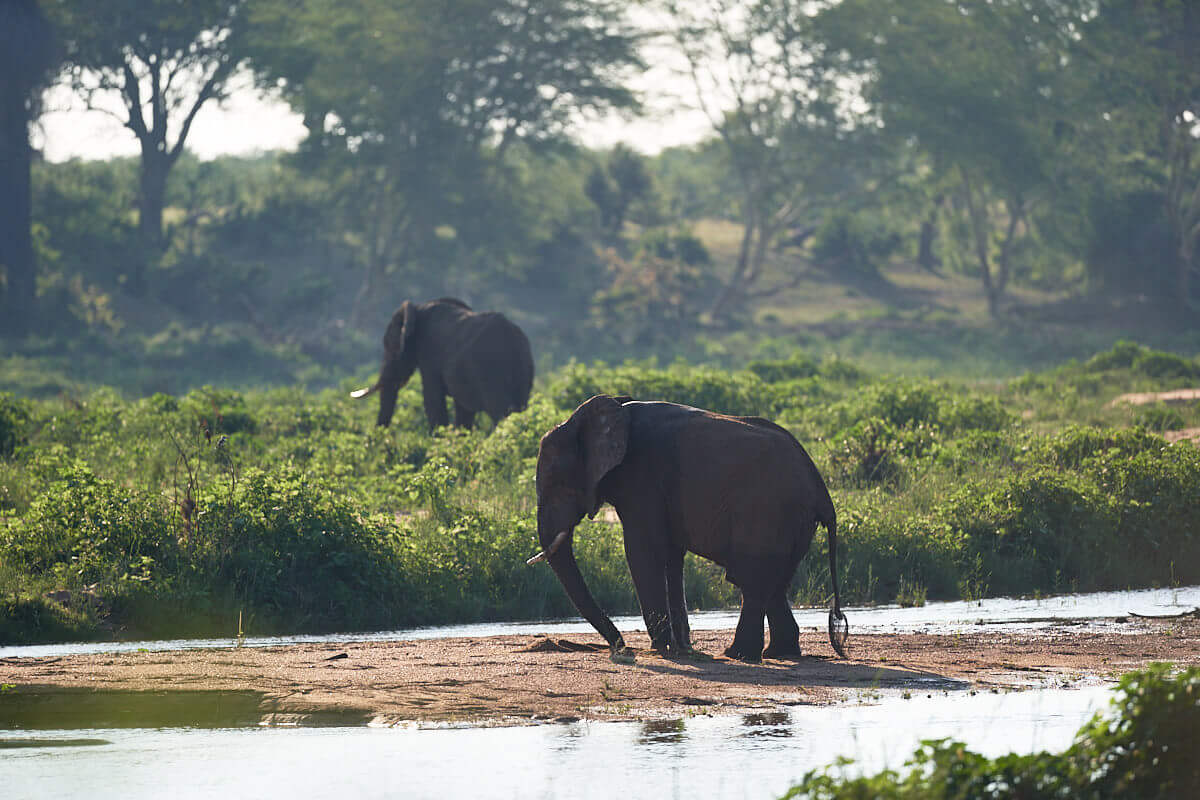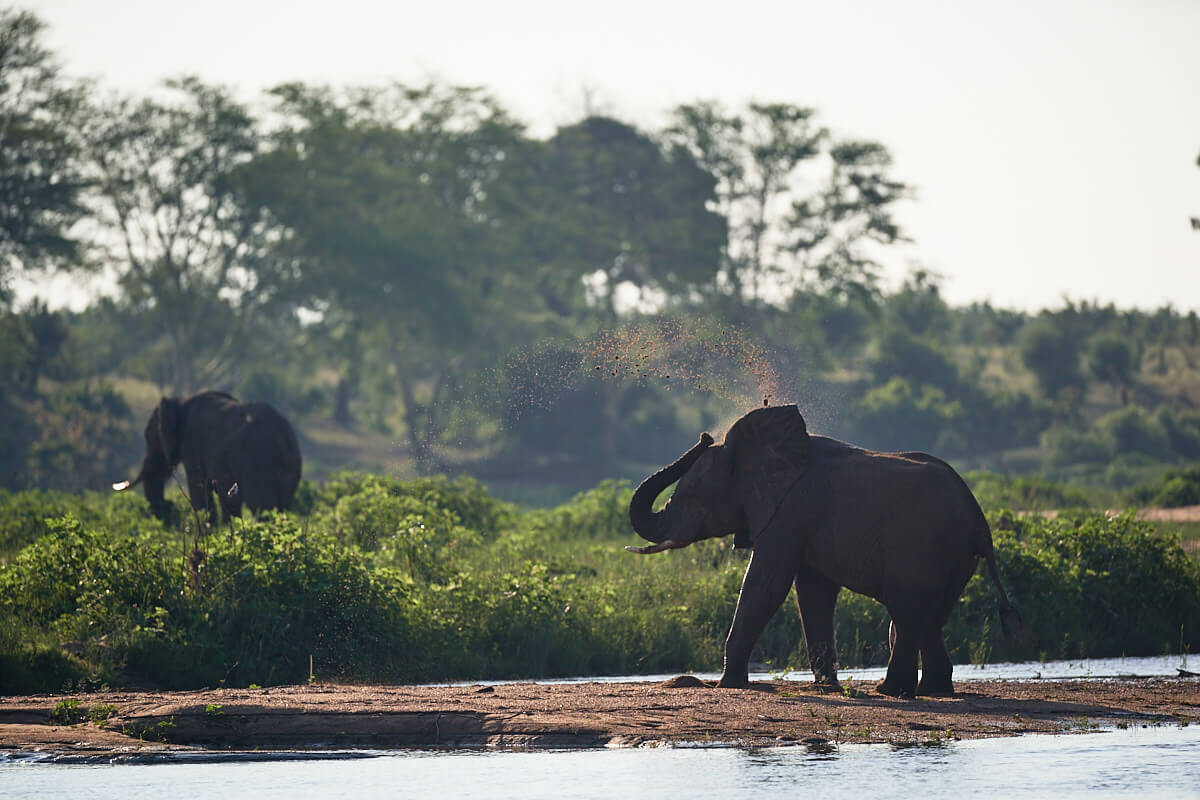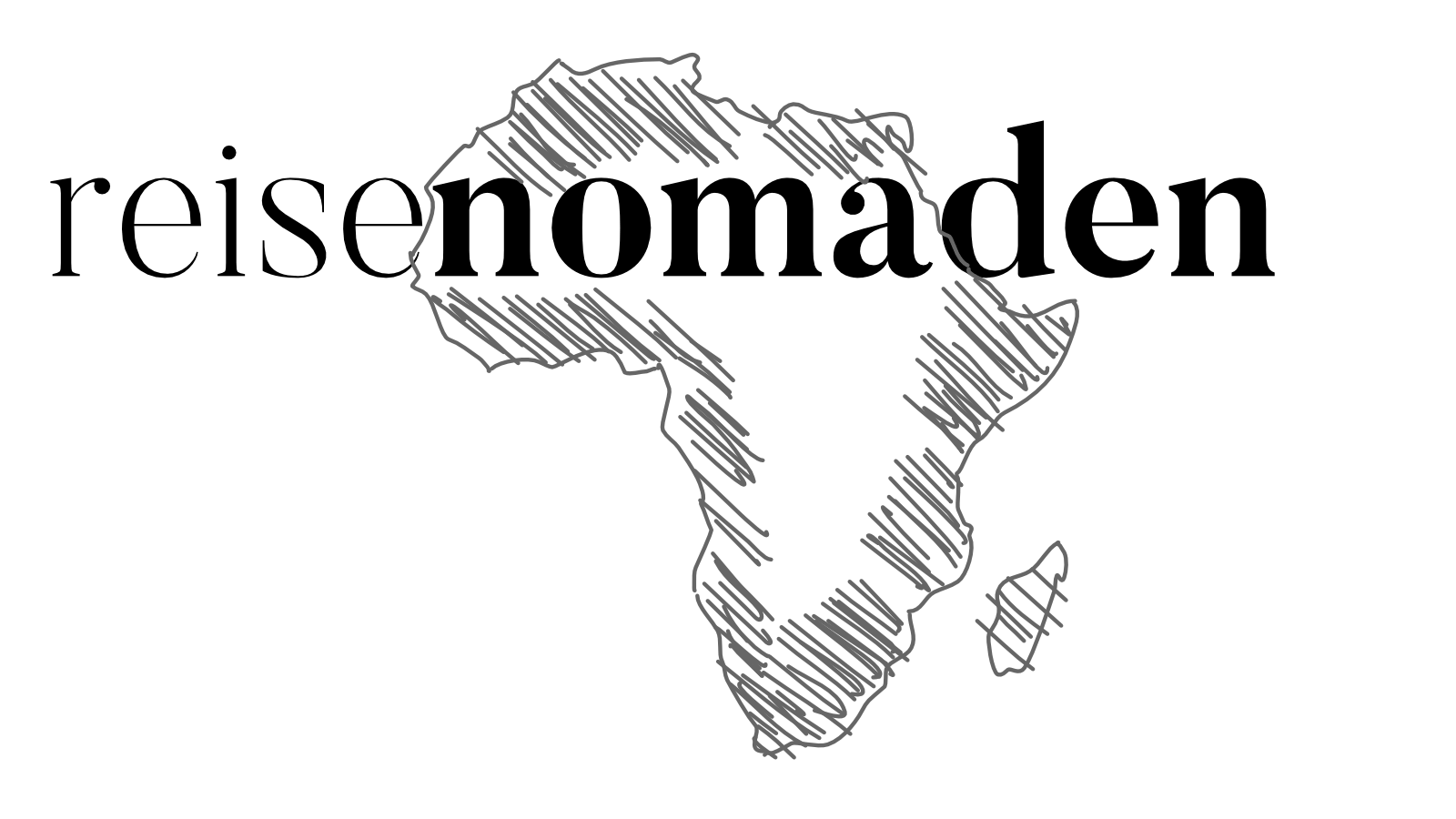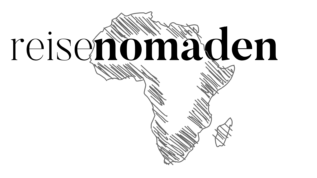Our way to Gonarezhou NP
Our first stop after arriving in Zimbabwe should be Gonarezhou NP. This park, which is part of the “Greater Limpopo Transfrontier Park“, impresses with its nature and wildness. Well. To stay with oneself and to gain the greatest possible clarity is our recipe for the journey through life. There were big problems in Zimbabwe in the form of availability of Gasoline/Diesel and empty supermarket shelves.
There were demonstrations in Harare and there were military operations against the demonstrators. People were shot. There is a lot to read about Zimbabwe and the current big crisis. Many people know someone who knows someone who was there recently and … All this is true and real. But in a crisis, situations change constantly. We have been keeping a close eye on Zimbabwe since November, we decided that we would like to go there if it was somehow feasible. In our opinion, it was possible now, and so we moved there.
Current situation in Zimbabwe
The demonstrations have been over for some time and there has been no military action either. There are three most persistent statements on the Internet are these:
- Police road blocks are active again, and they harass you and rip you off
- You have to wait for hours at gas stations to get Diesel, if you get any at all.
- Food is not available and when it is, it is ultra-expensive.
We encountered the police road blocks about 15 minutes after crossing the border. Our experience was that a truck was stopped in front of us to check it. The policeman immediately stopped the oncoming traffic, turned to us and signaled us to drive through the oncoming traffic past the truck to continue our journey. He smiled in a friendly manner as he did so. At this point, while this post is being written, we have completed nine Road Blocks. No one ever spoke to us – we were stopped at none. In our opinion, the police has the instruction to handle tourists smooth and nice.
Our refueling experiences
We have already refueled twice. We drove to the gas station, asked the gentleman to fill up, paid and left again. In both cases, it took less than five minutes. We can imagine that it depends on where you are. We filled up at USD-Gas-Stations. They only accept USD and only in cash.
The price of 1.25 USD/liter is totally acceptable. The people are incredibly nice and help where they can. Finding such a gas station is no problem and with the information, it is not necessary to join the long queue of local vehicles waiting to pay with local currency or card.
Long queues and stocked supermarkets
Locals wait up to 24 hours(!). The longest queue we have seen ourselves was estimated 300 meters long and went over several streets. The problem here is not the refueling itself, but the payment. Many people have cash, but don’t want to spend it because they are afraid they won’t get any. So, they pay by card or Eco Cash (on their cell phones). But the devices work unreliably and that causes the endless waiting times.
The supermarkets are fortunately well stocked again. Prices are normal – for example, a loaf of bread costs about 0.6 USD (2.20 ZIM dollars). A carton of 30 eggs about 2.60 USD (10 ZIM dollars). We are well-prepared with food for 4 weeks, but just like to see if we can get fresh vegetables or fruits. We paid about 1 ZIM dollar for 4 bananas, which is less than 0.26 USD. The insane prices during the phase when there was nothing available are currently a thing of the past. Our wish for the people of Zimbabwe is a stable supply situation in the country. All three points are not applicable at the moment – which certainly makes our trip easier.
Curiosity accompanies us to Gonarezhou NP
Due to the long waiting time at the border, we were forced to plan an overnight stop. Our GPS showed a campsite at the Nuanetsi Game Ranch. This campsite was quite remote but convenient for the access to Gonarezhou. We decided to try our luck and go there. We left the A4 and drove across the game ranch, passing small villages and clusters of houses.
No matter where we passed, we were greeted friendly everywhere. People laughed, waved and gave their thumbs up. Whenever we wanted to turn or should have according to the GPS, we came to a barrier and a security guard refused to let us pass and sent us straight on. It was getting darker and darker, and we were no longer on the right track.
People are friendly
We passed another barrier and were back on municipal land. Everywhere we met people on foot or on donkey carts.
We will never forget an old lady. She was sweeping the square in front of her hut with a small hand broom when she heard the sound of our car. She threw the broom away when she saw us, started to jump, put on her broadest laugh and waved what her arms could give. We are not exaggerating when we say that >90% of the people reacted extremely positively to us – a really great feeling.
It was getting darker and darker, and we realized that we had to camp wild. We looked for a small clearing that was a bit off the beaten path, avoided noise and a campfire, and went to sleep early. Dogs barked at some distance and around 4:30 a.m. we got up again after a good night’s sleep, packed up and left the clearing the way we had come.
A nightmare was on its way
We were still driving in the dark of the night, slowly, not to collide with donkeys or cows, when Guido noticed huge spider webs spun across the road. We could not tell what these spiders were, but they were large. The webs must have been about 2 meters high and went the entire width of the road (about 2.50-3 meters). When we drove through and destroyed the webs, the spiders inevitably landed on the car and rode along as stowaways.
We surely loaded up about 40(!) of these brightly colored creepy crawlies with legs about 10-13 cm long. We didn’t even dare to open a window a crack. When the sun started to rise, and we drove through a more open landscape, Sonja had the glorious idea to get out and have a look at the spider dilemma. Guido was happy about this offer!
Sonja spent the next 10 minutes picking up large branches and accompanied by loud Ahhhs and Uhhhs to remove spiders from our car.
We reach Gonarezhou NP
We repeated this procedure twice more and sometime after what felt like an eternity we were supposedly spider-free when we reached a side gate of Gonarezhou NP. After signing the book, we followed the description to the reception and suddenly stood in front of the river Runde. On the other side of the river, the trail continued. Guido shrugged his shoulders and said, “let’s go through here”. Sonja, who sincerely hates river crossings, again fidgeted in her seat and didn’t agree at all. Before we knew it, we reached the opposite side and Sonja was calmed down again. At this time, she didn’t know what to expect.
The Chilojo Cliffs are a delight
Arriving at the front desk, we booked ourselves into the park for 4 nights and bought some more firewood. While stowing the same, Guido noticed another forgotten stowaway and the silk spider became the attraction of the lady from the front desk. We drove towards the Chilojo Cliffs and experienced a wild park without visitors, but with a magnificent nature.
The Rangers informed us that the elephants of the park would react slightly aggressive. The park, which directly borders Mozambique on one side, has to deal with poaching problems. We arrived at the cliff side campsite and were blown away. What a wonderful place this was! The campsite was elevated directly on the riverbed with a view of the cliffs, which built up huge in front of us.
A foggy surprise
A wonderful place to stay. In the afternoon, a herd of elephants came into the riverbed for a drink. Actually, we should cross the Runde river the next day and drive up the park on the side of the cliffs and spend the night on one of the campsites there. But we were told to return directly in case of light rain. Otherwise, the river might become impassable.
It did not come to that because at night it began to rain. In the morning, a dense fog greeted us, which wrapped the cliffs in a mystical atmosphere. We renounced the crossing and stayed the night at the cliffs as well. An elephant visited us in the camp and stood about 20 meters next to us under a tree. He just stood there, put his trunk over his tusks and rested.
New experiences with elephants
We continued as before and after about an hour he slowly moved on. No trace of aggression at all. The next morning we did a game drive on one of two big loops, saw two wild dogs and met elephants before we drove to a campsite near the entrance. There we could observe hippos in proximity. In addition, bull elephants liked to use this area for bathing and playing around. We had a wonderful time and one of the elephant bulls came into camp.
Guido was just sitting in the small shelter available there, that provided shade and was busy editing pictures and Sonja was doing laundry, and she was not there when this bull entered our camp and started feeding. Guido watched him for about 30 minutes before returning to the laptop as the bull curiously came closer and closer. The two looked deeply into each other’s eyes, about 2.50-3.00 meters apart, separated only by one of the tree trunks serving as a roof support.
The bull then turned back, ate for about another 15 minutes, and then disappeared into the thicket. This was an incredibly intense encounter that Sonja unfortunately missed. She instinctively sensed something was going on, but didn’t want to interrupt the activity. Amazing what our feelings enable us to do again and again when we listen to them. Unfortunately, she missed this meeting because of that, which annoyed her a lot afterwards.
A place to stay
Since we liked the park very much, we drove to the reception the next day to extend a night. Maybe the elephant will visit us another time? The friendly staff convinced Guido to stay for three days. It would be worthwhile to drive to the other side of the river and explore the regions and different vegetation there.
After a brief discussion, we agreed and crossed the river another time. At the place designated for this purpose, large stones have been laid in the riverbed to make it easier. Unfortunately, there are no markings and so these stones are more of a hindrance than a help, as you sink sideways as soon as you leave the invisible route. The depth of passage was about 40-45 cm.
Towards the adventures
The ride along the river became a real wilderness trail. Erosion had destroyed trails. Tracks were invisible due to hoods of tall grass and trees knocked down by elephants blocked our way. We had to overcome sandy edges of about 50 cm when passing through a dry riverbed and made our way forward kilometer by kilometer. After about 10 km we came to a road that looked convincing for the first time and actually gave us a somewhat carefree ride for about 20 km.
Unpleasant were the completely frightened elephants, which suddenly rushed out of the dense mopane forest. They were trumpeting loudly, crossed the way with waving ears and raised trunks, and then immediately disappeared again in the thicket on the other side. Although we immediately turned off the engine, they hardly calmed down. This hurts us because it is clear that these animals have adapted their behavior to increased poaching activity and are highly stressed. Several more times on the way north we were not sure where the road should be and without Tracks4Africa on the GPS we would have been lost and never reached our destination.
Sometime around 5:00 pm, we finally arrived at the place where the campsite was supposed to be. We were standing on the high edge of the river bank and in front of us was a hole of about 15 by 10 meters in diameter. This piece had been washed out by the river during the rainy season, making the campsite inaccessible to cars. We decided to choose another site nearby and camped wild with a fantastic river view.
In search of a suitable position
The next morning we drove around enjoying, as much as possible, the changing vegetation. We passed through beautiful open forests with various watering holes and saw eland antelopes and herds of zebra. All of them were very shy and had a high flight distance. Arriving at our second booked campsite, we saw a small clearing of about 50-60 square meters, with only one access road and surrounded by water.
There was fresh elephant dung on the campsite. It was immediately clear that we would not stay here either. On the one hand, the millions of mosquitoes would eat us up in the evening and on the other hand, we fortunately learned something about escape routes and the selection of places so that we immediately recognized that an elephant that would come to the campsite would have just as few ways out as we did. There would be no escape routes for either of us, and thus this encounter would end in a confrontation which we had to avoid.
Fantastic Runde
This place is wonderful for a picnic at noon but not as a place to spend the night. We studied the park map and decided to drive to Chitove and check out this campsite, which was also supposed to be right on the riverbed. After another adventurous drive we reached the campsite around noon, and we really liked the place! In the immediate vicinity was a hippo pool garnished with thick rocks and large crocodiles. The campsite offered shade and a great view of the river.
In the afternoon clouds rolled in, and it began to rumble and thunder some distance away. We were torn. Should we leave and turn back, or could we stay? Suddenly, a park vehicle appeared, and we saw four rangers wading through the river. That’s when we noticed that not far from our campsite was a causeway and the trail was marked by stakes in the riverbed. The rangers checked the depth (ankle to knee-deep at most) and then headed back. Sonja thought that it would already not rain and if, then only very briefly, so she was happy to stay.
The world comes to an end
Considering the spatially close possibility of the river crossing Guido agreed. As soon as we sat down on the rocks to enjoy the Sundowner with the hippos, it started to drip. The drizzle turned into a solid thunderstorm, which gave us three hours of heavy continuous rain with countless thunder and lightning. The next morning we saw the rangers return. This time they started wading through knee-deep water and ended up in waist-deep water.
It was thus clear to Sonja that this passage was impossible. All of Guido’s attempts to convince her that this was a really safe passage option despite the water level rise failed. Sonja really wanted to go back the way she came and use the place for crossing that we used on the way there.
The adventure is going on
The rain brought about impressive changes. For example, paths were suddenly washed away or cracks opened up in the ground several meters long. In other places gigantic muddy areas were formed, which we left out without discussion and drove back the way to find alternatives (at this point thanks to the experience in the Central Kalahari *g). The dry river, where we had to overcome the approx. 50 cm high sand edge on the outward trip and which consisted exclusively of deep sand, now accommodated in its center a tree of about 7 – 9 meters length and the river bed was filled with mud.
The edge had shrunk to about 10 cm in height. At this point even Guido had to swallow because it was clear that we had to get through there somehow. He wandered around inspecting the area looking for a ford that offered doable conditions, and after a few minutes he had a plan. We dropped the tire pressure to 1.5 bar, and he walked the entire way, allowing Sonja to assess the plan and gain confidence.
We find the right path
She directed Guido off-road through the trees down the steep slope to the riverbed. We got safely to the other side and from there it was no problem to get to the river. We crossed the river at the same place as on the way there. It was unpleasant because the current increased and the level had increased by an estimated 10 cm, but it was good and doable without incident. On the way there it took us about two hours from the river to the top campsite.
The way back from the last campsite (about 45 minutes from the first one) to the river crossing took four and a half hours. We were really knackered and arrived at the reception pretty much at 12:00 and Guido asked the ranger what he was thinking. We learned that on the day we returned, for the very first time in the season, someone was heading north to inspect the region! They actually sold us campsites without even having a clue what it looked like and what damage there was. We were the first ever to drive this area after the rainy season. You can only find something like this in Africa!
Recovering before the onward journey
We drove back to the campsite near the entrance where the elephants loved to scuffle in the water. There we wanted torelax the rest of the day. We were exhausted but in the end these experiences are burned into our brains, and we will never forget this story.
The next morning we left the park and after a short fuel stop in Chiredzi we headed to Masvingo. We checked in at Norma Jeane’s near the ruins of Great Zimbabwe. We decided to stay there for two days, enjoy a hot shower, electricity and internet, writing this report and then rest to continue exploring this wonderful and partly wild Zimbabwe.
